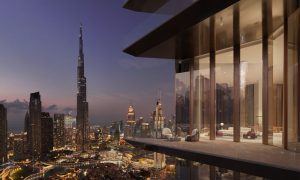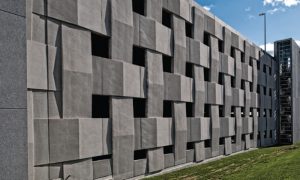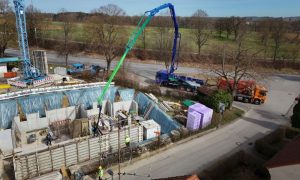Crude awakening for the UAE property market
Plunging oil prices have been a matter of concern for a while now, particularly in a region like the GCC, which is heavily dependent on its abundant hydrocarbon reserves. As crude prices continue to hover at about $50 a barrel, it’s worth examining the knock-on effect this will have on other industries, such as construction and real estate.
Interviews with construction executives in the initial months of the plunge last year didn’t indicate particular concern in the region, especially as government spending in the GCC showed no signs of slowing and large infrastructure projects continued to be announced.
But with oil prices still relatively low, governments in the region are slowly but surely starting to feel the pinch. The UAE, for one, is forecast to see a budget deficit of 2.3% this year, according to the IMF.
In such a scenario, the oil and gas sector certainly faces slower growth, putting pressure on job creation. According to a report by real estate consultancy Cluttons, this is already starting to take its toll on the UAE’s real estate market, particularly in oil-rich Abu Dhabi.
Abu Dhabi’s office market is already feeling the effects of a slowdown in public spending, which has dampened demand for new office space, Cluttons found. The emirate’s dependence on hydrocarbon revenues means office space take-up has traditionally been dominated by oil and gas firms, and demand therefore is now cooling significantly. Prime office rents are expected to feel headwinds early next year, the consultancy says.
Meanwhile, in Sharjah, office rents held steady in the second quarter, with the flat performance indicating a scaling back of overall requirements and take-up levels, as dominant oil and gas occupiers assess their expansion plans.
As the rate of office space take-up and subsequent job creation is impacted, there is expected to be a knock-on effect on demand for residential space. As in other global markets, companies in the UAE’s oil and gas industry are being squeezed financially, and headcount reductions and office space consolidation are now being observed, an interview with Cluttons on the sidelines of last month’s Cityscape revealed.
It’s fairly clear that economic diversification is the only way forward for the country. Abu Dhabi appears to have realised this and is taking steps to boost its non-oil GDP, as outlined in its 2030 vision to diversify the economy.
At the federal level, lower oil revenues are starting to have an impact on policy. On August 1, the UAE become the first GCC state to deregulate fuel prices, removing subsidies that have been in place since the country’s formation. While petrol prices were hiked in the first month, diesel prices were reduced. This is expected to contribute to the growth of many industries, including construction, which could surely see benefits from lower fuel costs for trucks and equipment.
Further economic reforms are expected, with the government now considering tackling the sensitive issue of value added tax (VAT). In the short run, this does not sound like good news and might further push up the cost of living. However, as the country follows in the footsteps of more mature economies around the world, the government will need to look at more sustainable sources of revenue beyond oil, and in the long run, this would be a step in the right direction.

























